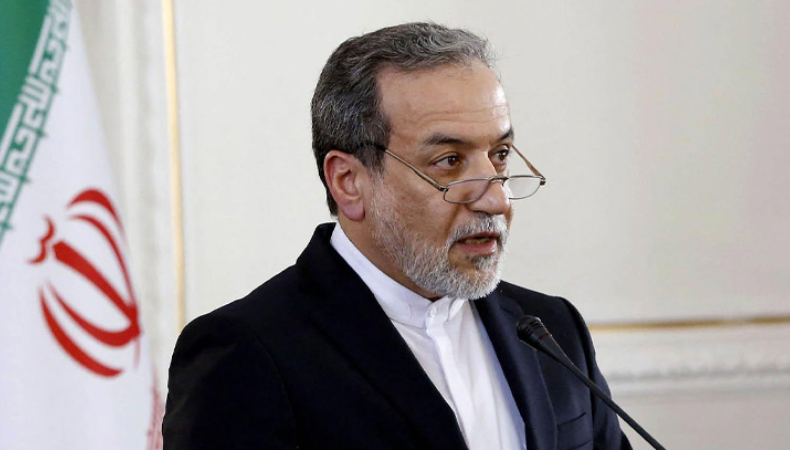Iran Warns European Powers Against New Censure Resolution at IAEA Amid Tensions

Following the three European countries trying to adopt a fresh censure resolution against the Islamic Republic at the International Atomic Energy Agency (IAEA), Iran has issued a severe warning to France, Germany, and the United Kingdom. This action follows the visit of Rafael Grossi, the chairman of the nuclear watchdog, to Tehran that increased tensions between Iran and the European countries. Arguing that their resolution will compromise ongoing diplomatic efforts and further complicate the nuclear problem, Iran’s Foreign Minister, Abbas Araghchi, denounced the actions of the European trio, sometimes known as the E3.
Iran’s Strong Protest Against E3’s Resolution: A Diplomatic Stance
Araghchi expressed Iran’s annoyance with the E3’s advocacy of another resolution on a phone call with French Foreign Minister Jean-Noel Barrot. He called the action straight opposite the “positive atmosphere” that recent interactions between Iran and the IAEA had promoted. The Iranian administration cautioned that the acts of the European powers would only worsen the situation, therefore deepening the standoff and increasing the difficulty of a solution.
Their fourth such endeavor since 2020, the E3’s demand for the resolution marks a notable change in the continuous tensions over Iran’s nuclear program. Particularly the Joint Comprehensive Plan of Action (JCPOA) signed in 2015, the resolution is considered as a direct attempt to chastise Iran for its nuclear operations, which the European countries claim violate international agreements and policies. The E3 has often voiced worries over Iran’s nuclear developments, which they see could finally open the path for the nation to acquire nuclear weapons.
Iran’s Nuclear Program Reports from IAEA: Indices of Compliance?
The European decision arrived just after the IAEA published private assessments on Iran’s nuclear activity. Shared with IAEA member nations on Tuesday, these papers show a notable change in Iran’s nuclear posture. The reports state that Iran has promised to stop additional stockpiles of 60 percent enriched uranium expansion, a level of enrichment near to the 90 percent required for weapons-grade uranium. In Tehran’s continuous negotiations with the world community, this compromise is considered as a mark of goodwill.
Iran had already started “preparatory measures” to limit its stockpile of highly enriched uranium at about 185kg (407 pounds), the IAEA further observed. This action shows Iran’s readiness to restrict its nuclear enrichment in return for sanctions relief and more general diplomatic concessions, therefore helping to defuse tensions. The E3 is still dubious in spite of these initiatives since many Europeans believe that these steps do not sufficiently control Iran’s nuclear aspirations.
A sensitive diplomatic balance: Will Iran’s concessions be sufficient?
Iran’s willingness to restrict its stockpile of enriched uranium marks a dramatic change in the nation’s nuclear stance, but opinions on the importance of these steps remain split worldwide. Although the IAEA has noted Iran’s actions, European countries and the United States have kept raising questions about Iran’s general nuclear nonproliferation regime compliance. The E3’s demand for a fresh resolution at the IAEA seems to be an effort to guarantee Tehran keeps its word and that Iran’s nuclear operations are closely watched.
Iran has countered that the E3’s demand for censure could compromise its efforts to fulfill its duties under international law and the JCPOA. Tehran sees the continuous pressure from the European countries as a barrier to the possibility for diplomatic breakthroughs and a comeback to the nuclear accord. The future of the nuclear agreement is yet unknown as Iran and the IAEA negotiate; tensions will probably rise as long as the problem of uranium enrichment remains unresolved.
For Iran and the International Community, what stands at risk?
The conflict between Iran and the E3 emphasizes how increasingly difficult the nuclear discussions are. On the one hand, the European countries are utilizing diplomatic channels like the IAEA to pressure Tehran into compliance and aim to stop Iran from getting nuclear weapons. Iran, on the other hand, sees the drive for more condemnation as an attack on its sovereignty and a deterrent to meaningful interaction with the world community.
The world community today must delicately balance. One side of the argument is the wish to stop Iran’s nuclear program so as to guarantee that it does not cross the line toward nuclear weapon development. Conversely, it is acknowledged that ongoing pressure and isolation could drive Iran farther away from the negotiating table and impede the possibility for a diplomatic solution. Whether Iran can keep its promise to restrict uranium enrichment or if the ongoing criticism by the E3 will force the situation to a breaking point will probably depend on the next weeks and months.
Knowing that the stakes are quite high—not just for the future of Iran’s nuclear program but also for the stability of the Middle East and worldwide security—the world watches attentively as this diplomatic impasse develops.




